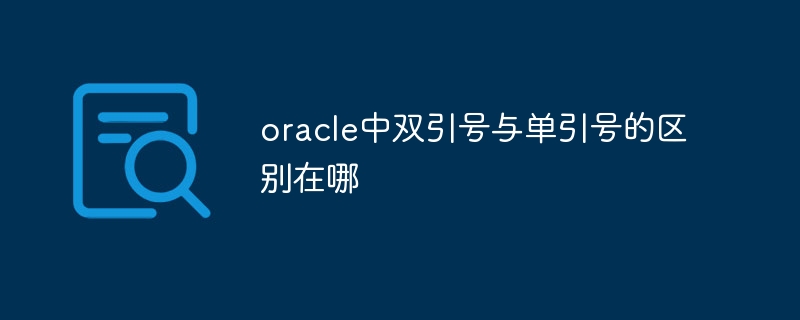In Oracle database, double quotes quote object identifiers (such as table names), and single quotes define string literals. Single quotes in single-quoted strings need to be escaped, are case-sensitive, and cannot be spliced; double-quoted strings are not case-sensitive and can be spliced.

The difference between double quotes and single quotes in Oracle
Double quotes and single quotes are used to identify in Oracle database String literal. While both can be used for this purpose, there are some key differences.
1. Object reference
Double quotes are mainly used to quote object identifiers, such as table names, column names, view names, etc. For example:
<code class="sql">SELECT * FROM "Employee" WHERE "emp_id" = 1;</code>
Object identifiers cannot be quoted using single quotes.
2. String literals
Single quotes are mainly used to define string literals, for example:
<code class="sql">SELECT 'Hello World';</code>
Double quotes can also be used for strings Literal, but with no special meaning.
3. Special character escaping
In a single quote string, if you want to use the single quote character itself, you need to escape the character''escape. For example:
<code class="sql">SELECT 'He said, "Hello World"';</code>
In a double-quoted string, there is no need to escape single quotes.
4. Case sensitivity
In a single-quoted string, the characters in the string are case-sensitive. For example:
<code class="sql">'Hello' <> 'hello'</code>
In a double-quoted string, the characters in the string are not case-sensitive.
5. Character splicing
Double-quote strings can be spliced, but single-quote strings cannot. For example:
<code class="sql">SELECT "Hello" || " World";</code>
Summary
The following are the main differences between double quotes and single quotes used in Oracle:
The above is the detailed content of What is the difference between double quotes and single quotes in Oracle. For more information, please follow other related articles on the PHP Chinese website!




